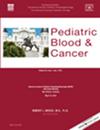Pediatric oncology nutritional practices in high-income countries: A survey from the International Society of Paediatric Oncology (SIOP)
Abstract
Background
Optimal nutrition in pediatric oncology can influence cancer-related outcomes. To establish an understanding of nutrition practice and perceptions of best practice, we queried nutrition providers practicing in pediatric oncology care centers in high-income countries.
Methods
An electronic, multidisciplinary, cross-sectional survey of nutrition practices was conducted among pediatric oncology nutrition practitioners. Final analysis included 110 surveys from 71 unique institutions and included practitioners from Europe, the United States, Canada, Australia/New Zealand, South America, and the Middle East/Asia.
Results
The majority of institutions (97%) reported having dietitians; 72% had designated oncology dietitians. Approximately half of the practitioners (47%) reported feeling their institutions were inadequately staffed. The majority (78%) of institutions completed nutrition risk screening, but there was no consensus on specific screening practices. Half (50%) of the institutions that screened for nutrition risk did so in both inpatient and outpatient settings. The majority (80%) of institutions completed a nutrition assessment close to the time of diagnosis. Those that did not cite lack of staff and/or lack of time, lack of standardized approach, and consult only level of nutritional care as primary barriers. The most common topic of nutrition education provided to patients/families was nutrition-related symptom management (68%).
Conclusion
While most institutions reported having pediatric oncology dietitians, we found a lack of standardized practice and perceived inadequate staffing. In addition, what providers perceived to be best practice did not always align with day-to-day clinical practice. Ongoing efforts are needed to develop evidence-based guidelines, including staffing recommendations, to support specialized care in this population.

 求助内容:
求助内容: 应助结果提醒方式:
应助结果提醒方式:


